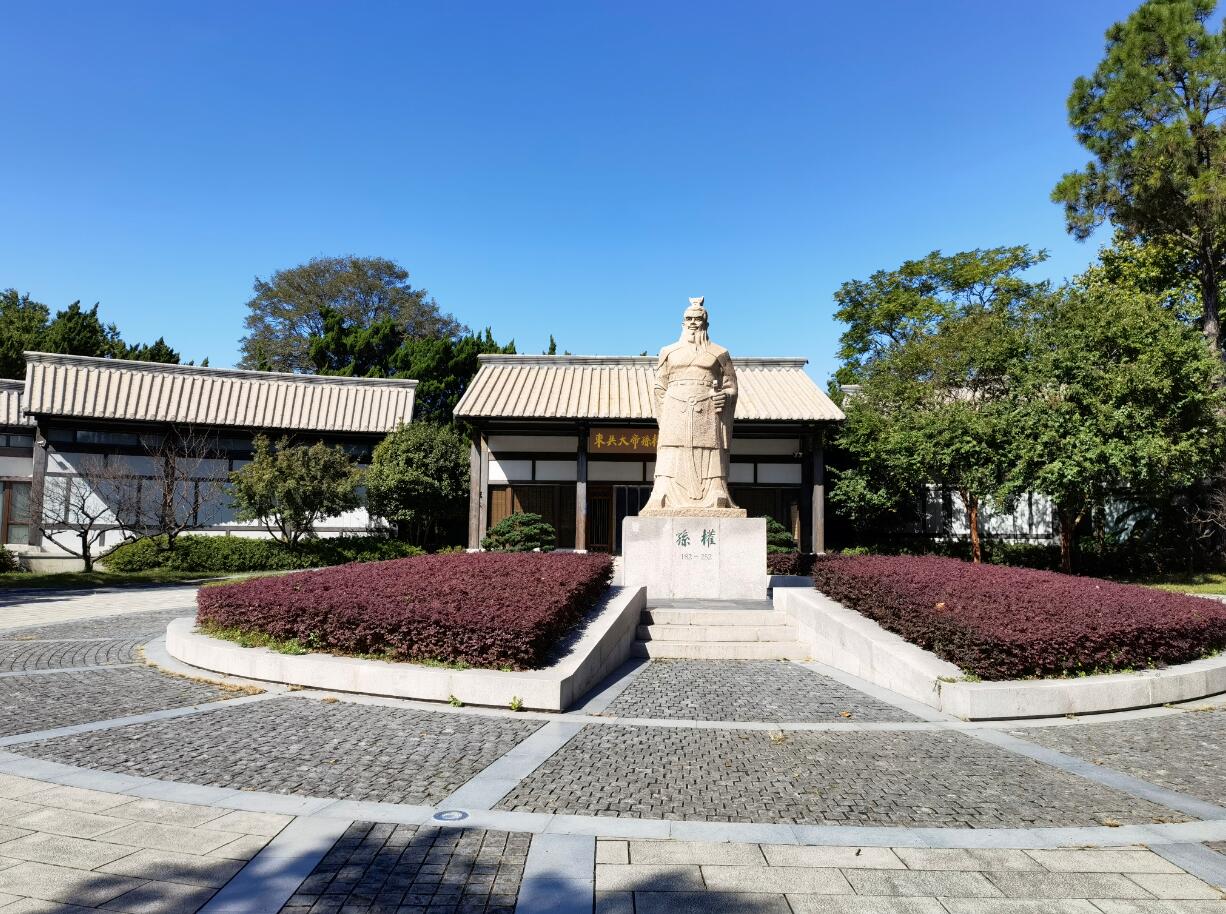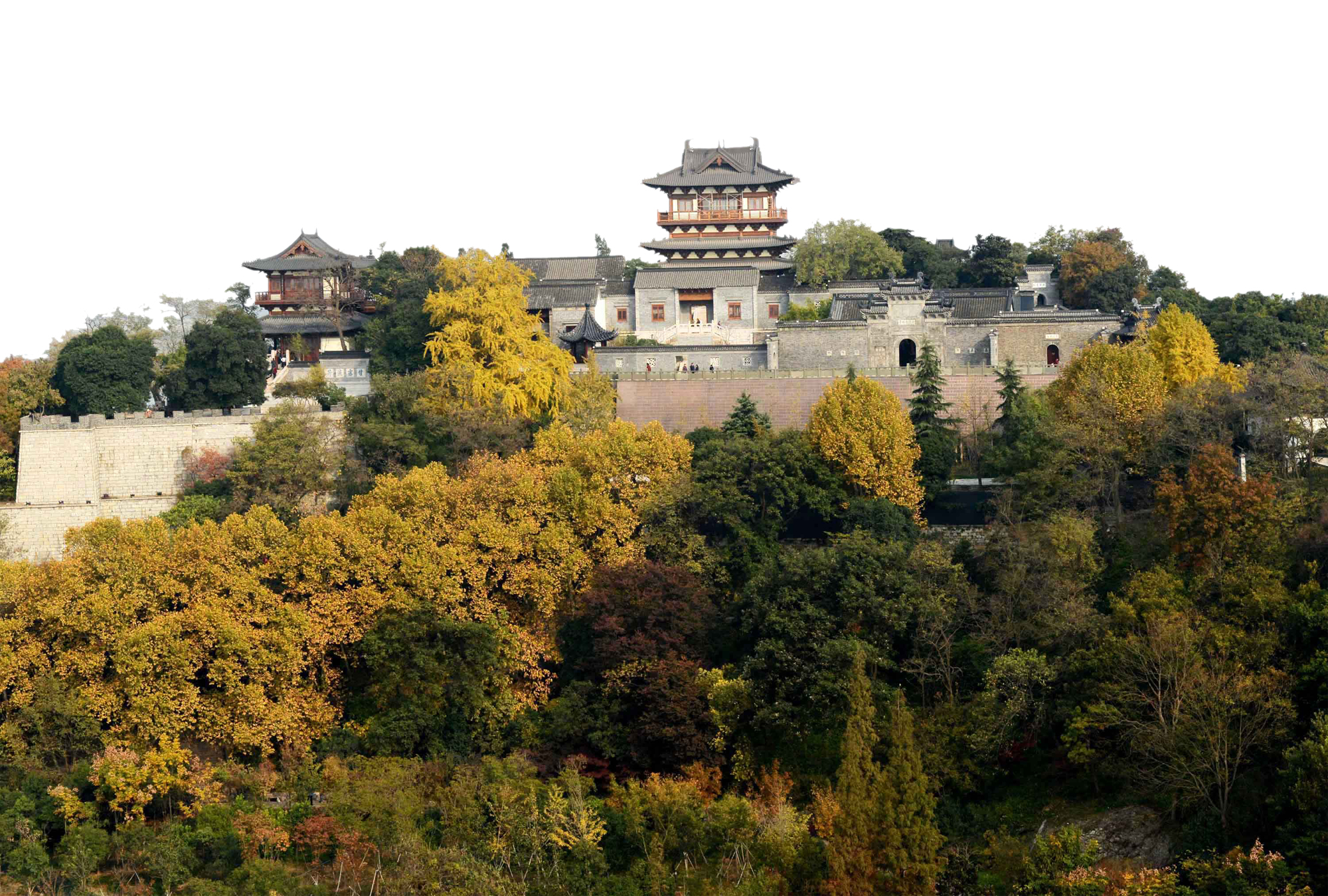2022-09-18
The northern part of Jiangsu was a territory of the State of Wei during the Three Kingdoms period. Xuzhou was a battleground for military strategists that time. The southern part of Jiangsu was a territory of the State of Wu, which established its capital in Jianye (a former name of Nanjing). There are numerous historical relics from that period throughout the province.
Nanjing·Sun Quan’s Mausoleum on Meihua Mountain
The mausoleum of Sun Quan, a great emperor of the Wu State of the Three Kingdoms, is called as the first imperial mausoleum in Nanjing. As no definite evidence that it’s the true mausoleum can be found, the place is more of a legend now.
“Sun Lin Gang” (the hill where Sun Quan’s Mausoleum is located) was retained by Zhu Yuanzhang, the founding emperor of the Ming Dynasty, during the construction of Ming Xiaoling Mausoleum. Later, to commemorate Sun Quan’s burial at Meihua Mountain in Nanjing, the Sun Quan Story Park was built at the east foot of Meihua Mountain in 1933. In the park, there is a 5.1-meter-high stone statue of Sun Quan, as well as a Sun Quan Story Gallery, where 12 relief stone carvings depicting Sun Quan’s life were engraved, vividly telling the stories of his heroic life. Although there is still no definite trace of Sun Quan’s Mausoleum, the Bo’ai Pavilion at Meihua Mountain in Nanjing is the most likely site. Sun Quan Story Park and Bo’ai Pavilion are strongly-recommended destinations for people who are interested in the Three Kingdoms or Sun Quan while visiting Meihua Mountain in Ming Xiaoling Mausoleum, Nanjing.
 Wuxi · Three Kingdoms Film and Television City
Wuxi · Three Kingdoms Film and Television City
Instead of a historical relic, Wuxi Three Kingdoms Film and Television City is a theme park of the Three Kingdoms, where movies and TV dramas on the theme of the Three Kingdoms are filmed. It attracts nearly 3 million tourists every year for its colorful cultural landscapes and various experience programs.
The solemn and awe-inspiring atmosphere of the tall and mighty gate tower with flags fluttering in the wind is intensified by the statues of “Tianlu” and “Bixie”, two divine beasts, on the square. The episode of “Empty City” (presenting a bold front to conceal a weak defense) that Zhuge Liang defeated the main forces of Sima Yi by strategy in the show was filmed here.
“Horse Racecourse” in the Three Kingdoms City is a not-to-miss attraction here, as the equestrian team, which participated in the filming of the famous TV show “The Romance of the Three Kingdoms”, performs “Three Heroes Fighting Against Lv Bu”, a famous scene in the show, at 10 a.m. and 16:00 p.m daily. The fascinating performance is rather attractive for its exciting scene of fighting. After the performance, visitors can also mount the horses in martial attire to experience the heroic mood of the legendary heroes on the battlefield.
Subsequently, visitors can walk to the “Chibi Plank Road”, a scenic spot built on the hillside, to listen to the gentle sound of water in the Taihu Lake beating the shore under the shadow of green pine and bamboo. It is a place for visitors to calm down and relax from the tense atmosphere of the history.
Beigu Hill, one of the Three Mountain Scenic Spots in Zhenjiang City, has a lot of scenic spots related to the stories of the Three Kingdoms, among which Ganlu Temple is the most famous. In The Romance of the Three Kingdoms, Liu Bei met his wife Sun Shangxiang here. Throughout the ages, numerous scholars visited Beigu Hill to explore the history of the Three Kingdoms. For example, Xin Qiji, a famous Ci (a type of Chinese lyric poetry) writer of the Northern Song Dynasty, versified during his visit to Beigu Hill that “Among his equals in the world, who were heroes true? Cao Cao or Liu Bei? The best is to have a son like Sun Zhongmou (Sun Quan)”.
It is recommended to follow the 8-shaped hill-trail to visit Beigu Hill, as there are also relics of the Song Dynasty, Ming Dynasty and Qing Dynasty along the trail.
 Xuzhou·Temple of Guan Yu at Tushan, Pizhou
Xuzhou·Temple of Guan Yu at Tushan, Pizhou
Tushan in the ancient cultural town of Pizhou, Xuzhou, was a battlefield during the Three Kingdoms period, famous for the chapter of “Three Commitments Asked for by Guan Yu at Tushan” in The Romance of the Three Kingdoms. In the Ming Dynasty, a temple was built in Tushan Town to commemorate the loyalty, righteousness, benevolence, and courage of Guan Yu, known as the “The Invincible Benevolent”. The temple was renovated and expanded during the Qing dynasty and the Republican period and became the largest Temple of Guanyu in Jiangsu Province.
